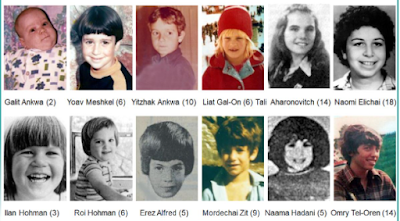This week is the anniversary of the notorious Coast Road Massacre, in Israel. Thirty-eight civilians were murdered in the attack. Seventy-one were wounded. Thirteen children were among the dead.
On March 11, 1978, twelve members of a Palestinian terrorist group led by Dalal Mughrabi landed on a beach near Ma'agan Michael. They were armed with Kalashnikov rifles, RPG light mortars and explosives. They walked to the nearby highway, where they began a murderous rampage, opening fire on passing vehicles before hijacking a bus. American photographer Gail Rubin was murdered by the group.
The terrorists continued to fire and throw grenades at passing cars. Passengers on the bus were shot and bodies were tossed off the bus. A second bus was commandeered, and the remaining passengers were forced on it.
In spite of the brutality of the murder, or perhaps, because of it, Dalal Mugrhabi has become a cultural icon to the Palestinian people. PA officials glorified Mugrhabi by naming a sporting event for after her nd encouraged the girls taking part in the event to "continue on the path [of martyrdom]." The teenagers also wore shirts sporting Mugrhabi's face on it.
In 2016, a basketball game for high school girls was named after Mughrabi. There is a square named for her in Ramallah.
This year is no different. Fourty-four years after the brutal attack on Israeli civilians, Palestinian social media is awash with posts glorifying this child-killer as a holy martyr, a blessed heroine and as "The bride of Jaffa"
In 2016, a basketball game for high school girls was named after Mughrabi. There is a square named for her in Ramallah.
This year is no different. Fourty-four years after the brutal attack on Israeli civilians, Palestinian social media is awash with posts glorifying this child-killer as a holy martyr, a blessed heroine and as "The bride of Jaffa"





No comments:
Post a Comment